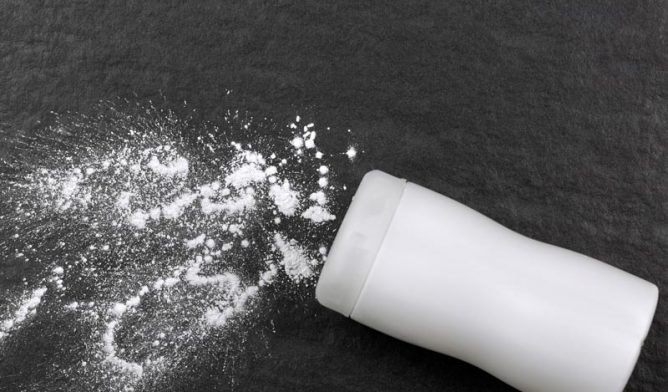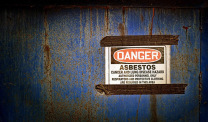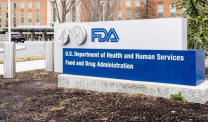FDA Panel Recommends Standardized Talc Testing for Asbestos
Asbestos Exposure & BansWritten by Tim Povtak | Edited By Walter Pacheco

A team of experts from eight different federal agencies has presented the U.S. Food and Drug Administration with preliminary recommendations to standardize the testing of talc for the presence of asbestos and other potentially harmful mineral products.
The recommendations, some of which reject long-held talc industry positions, are designed to end the discrepancies in analysis of whether talc products are contaminated with cancer-causing substances.
Preliminary recommendations will be part of the FDA’s public meeting on Feb. 4 to discuss and obtain scientific information on testing for asbestos in talc-based products such as Johnson’s Baby Powder.
Johnson & Johnson currently is facing more than 15,000 lawsuits stemming from consumers who are claiming its talc products have caused their cancers, including malignant mesothelioma.
The FDA in 2018 formed the Interagency Working Group on Asbestos in Consumer Products (IWGAC), which will present the findings as part of the day-long event in Silver Springs, Maryland. The goal, in forming the group, was improving consumer product safety.
“It is imperative that appropriate monitoring methods are available to detect asbestos in talc to ensure its suitability as a raw material for use as an ingredient in consumer products,” the panel wrote as part of its preliminary recommendations. “Inhalation of asbestos, from any source, is a safety concern.”
Recommendations from Various Agencies
The panel agreed with the assumption of the World Health Organization that there is no known safe level of asbestos exposure.
Members of the IWGAC making the recommendations include:
- National Institute for Occupational Safety and Health
- National Institutes of Health
- National Institute of Environmental Health Sciences
- Occupational Safety and Health Administration
- Environmental Protection Agency
- Consumer Product Safety Commission
- National Institute of Standards and Technology
- United States Geological Survey
Retailers have made several voluntary recalls of cosmetic products since 2017 because of the presence of asbestos, a naturally occurring mineral often found near talc deposits mined on the earth’s surface.
The latest recall was in October 2019 after the FDA announced that a bottle of Johnson’s Baby Powder tested positive for asbestos.
It was the first time the FDA had announced the findings of asbestos in the iconic product, prompting Johnson & Johnson’s first ever recall of its baby powder.
Contaminated talc previously had been found in makeup products and children’s crayons.
Laboratory Results Can Differ
After the FDA announcement about Johnson’s Baby Powder, Johnson & Johnson hired outside laboratories to conduct testing and found no asbestos in its product.
“Test methods exceed industry standards, and just recently, 155 tests by third-party labs using state-of-the-art methods, including those outlined by the FDA, show there is no asbestos in our talc,” a spokesperson for J&J told Reuters News Service.
Earlier this month, Johnson & Johnson settled one mesothelioma lawsuit after the jury had listened to testimony about the FDA’s latest findings.
The discrepancy in asbestos findings often stems from the different methods of testing, which include infrared and light-based microscopy and electron microscopy.
Some private research laboratories can find microscopic amounts of asbestos in talc, while other laboratories do not.
FDA Doesn’t Regulate Talc Industry
The Journal of the American Medical Association recently published a report that pooled four government studies and included more than 252,000 women.
Researchers found that the use of talc-based baby powder did not significantly increase the risk of developing ovarian cancer.
Others studies have shown just the opposite, fueling the onslaught of lawsuits.
One of the problems is that the FDA does not require manufacturers of cosmetic products to use standardized testing for asbestos in talc. Companies have been at liberty to dictate which testing methods were used in scrutinizing its talc.
The FDA will consider the latest recommendations in deciding whether to move forward with standardized testing, but the agency is not expected to make any decision soon.
The FDA wants to use next month’s forum as an information-gathering step to address the presence of harmful minerals, including asbestos, in talc.
One of the more significant recommendations involves identifying and quantifying other minerals in talc with the same composition and structure as asbestos.
Some laboratories currently will identify those substances — known as elongate mineral particles — as asbestos fibers. Others will not, leading to contradictory analysis.
“Lack of consensus concerning what should be called ‘asbestos’ has persisted since the first reports indicating that asbestos might be present,” the authors wrote. “The distinction is irrelevant.”






